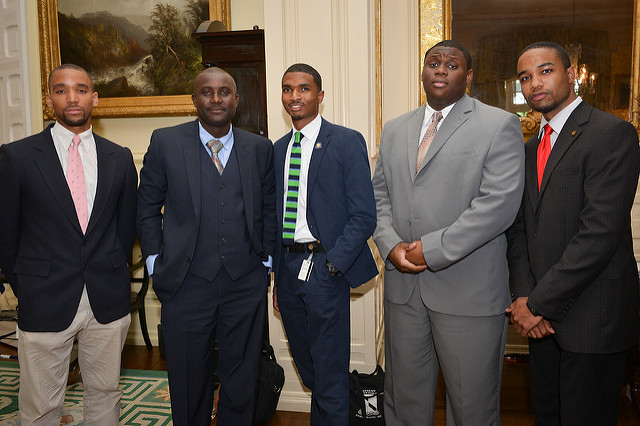Breaking the School-to-Prison Cycle

Though all people are genetically predisposed, it is ultimately the environment that encompasses the formative years that shapes lives. Some of that comes from home environments, and the rest from society. Our nation’s public schools play an integral role in fostering talents, however, they also play a pare in furthering the school-to-prison pipeline.
When one student is causing a classroom disruption, the traditional way to address the issue has been removal – whether the removal is for five minutes, five days or permanently. Separating the “good” students and the “bad” ones has always seemed the fair, judicious approach. On an individual level this form of discipline may seem necessary to preserve the educational experience for others. If all children came from homes that implemented a cause-and-effect approach to discipline, this might be the right answer. Unfortunately, an increasing number of students come from broken homes, or ones where parents have not the desire or time to discipline. For these students, removal from education is simply another form of abandonment and leads to the phenomenon called the “school-to-prison pipeline.”
The numbers represent a modern-day segregation. An estimated 40 percent of all students that are expelled from U.S. schools are black, making black students over three times more likely to face suspension than their white peers. When you add in Latino numbers, 70 percent of all in-school arrests are black or Latino students. If you want to see the correlation between these school-age statistics and lifetime numbers, consider this: 61 percent of the incarcerated population are black or Latino – despite the fact that these groups only represent 30 percent of the U.S. population. Nearly 68 percent of all men in federal prison never earned a high school diploma. The fact that the U.S. has the highest incarceration rate in the world is no surprise and the road to lockup starts in the school systems.
In a blog post by Sally Powalski, a 10-year employee of juvenile facility in the State of Indiana, she addresses what she sees every day: young men with no expectations of improvement and therefore no motivation.
Sally says this of the young men who come through her counselor’s office:
“They have been given the message for several years that they are not allowed in regular school programs, are not considered appropriate for sports teams, and have had their backs turned on them because everyone is just tired of their behavior… Why should they strive for more than a life of crime?”
Sally hits the nail on the head with her observations. Children are just as much a product of their environments as the expectations placed on them. Parents on a first-name basis with law enforcement officials certainly influence the behavior of their children, but school authorities with preconceived negative associations create an expectation of failure too. Increasingly, educators are learning how to recognize the signs of textbook learning disabilities like ADHD or dyslexia. But what about the indirect impact that factors like poverty, abuse, neglect or simply living in the wrong neighborhood have on a student’s ability to learn? Where are the intervention programs that keep these students on academic track without removing them from the school setting?
The term “zero tolerance” may sound like the best way to handle all offenses in public schools, but it really does a disservice to students. Not every infraction is a black and white issue and not every misstep by a student is a result of direct defiance. Often students with legitimate learning disabilities or social impairment are labeled as “disruptions” and removed from classroom settings under the guise of preserving the learning experience for other, “better” students. I suppose there is an argument to be made for protecting straight-and-narrow students from the sins of others, but at what cost?
High profile instances of school violence in recent years have led to a higher presence of law enforcement officers in public schools, often politely labeled as “resource officers” or a similarly vague term. Of course the presence of guns and other immediate danger items in schools are cause for arrest, or at least temporary removal of the student, but the American Civil Liberties Union reports that children as young as 5 throwing tantrums have been removed in handcuffs by these officers. Rather than addressing the heart of the individual problems, it is easier for public schools to weed out troublesome students under the umbrella of protecting the greater good. Convenience triumphs over finding actual solutions.
People who fall outside this fringe group of perceived misfits may wonder why the school-to-prison pipeline should matter to them. Outside of caring about the quality of life for other individuals, it matters in more tangible ways. Each federal prisoner costs taxpayers $28,284 per year, which is about $77 per day. That’s a measurable cost. What isn’t measurable is the indirect impact those incarcerations have on the economy in terms of those prisoners not contributing to the work force.
So what can be done to help these students, and really the common good? Schools are the first line of defense against this early form of pigeonholing, but the community needs to embrace the concept. Students with discipline problems are individuals that need customized learning experiences to succeed academically, in the years ahead.



